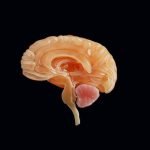Scientists find brain markers for good memory function
Researchers at the University of Basel have made a revolutionary breakthrough by discovering a correlation between certain brain signals and variations in memory performance...
What blood pressure numbers say about your brain health
A Simple Test with Deep Insights
Most of us have visited the doctor and experienced the routine of having a band wrapped around our arm....
Scientists find how toxic protein accumulation in Alzheimer’s disease
When we think of diseases like Alzheimer’s and Parkinson’s, we often imagine a loss of memory and motor skills, impacting millions of people and...
Insomnia and short sleep duration in midlife may increase dementia risk
A study published in Age and Ageing indicates that experiencing insomnia and short sleep durations during middle age may elevate the risk of developing...
How a common sleep supplement could boost memory function
The potential of melatonin and its derivatives in enhancing memory has been demonstrated in various animal studies.
However, the precise molecular mechanisms orchestrating these beneficial...
Short telomeres could signal higher dementia risk, study finds
What are Telomeres and Why Do They Matter?
Think of telomeres as the plastic tips at the end of your shoelaces; they keep the lace...
How walking helps older women prevent dementia
Are you looking to keep your brain healthy as you age? A new study from the University of California San Diego shows that older...
Scientists find links among anxiety, medications, and dementia risk
As people age, concerns about mental health issues like anxiety and dementia often grow.
A new study from Saint Louis University School of Medicine digs...
New webcam tool helps Parkinson’s patients check symptoms at home
Imagine being able to check how well you're managing your Parkinson's symptoms without having to go to the doctor's office.
Researchers at the University of...
Weight changes after Parkinson’s diagnosis linked to cognitive decline, study finds
A study led by Dr. Jin-Sun Jun of Kangnam Sacred Heart Hospital in Seoul, Republic of Korea, suggests that individuals who experience weight changes...










